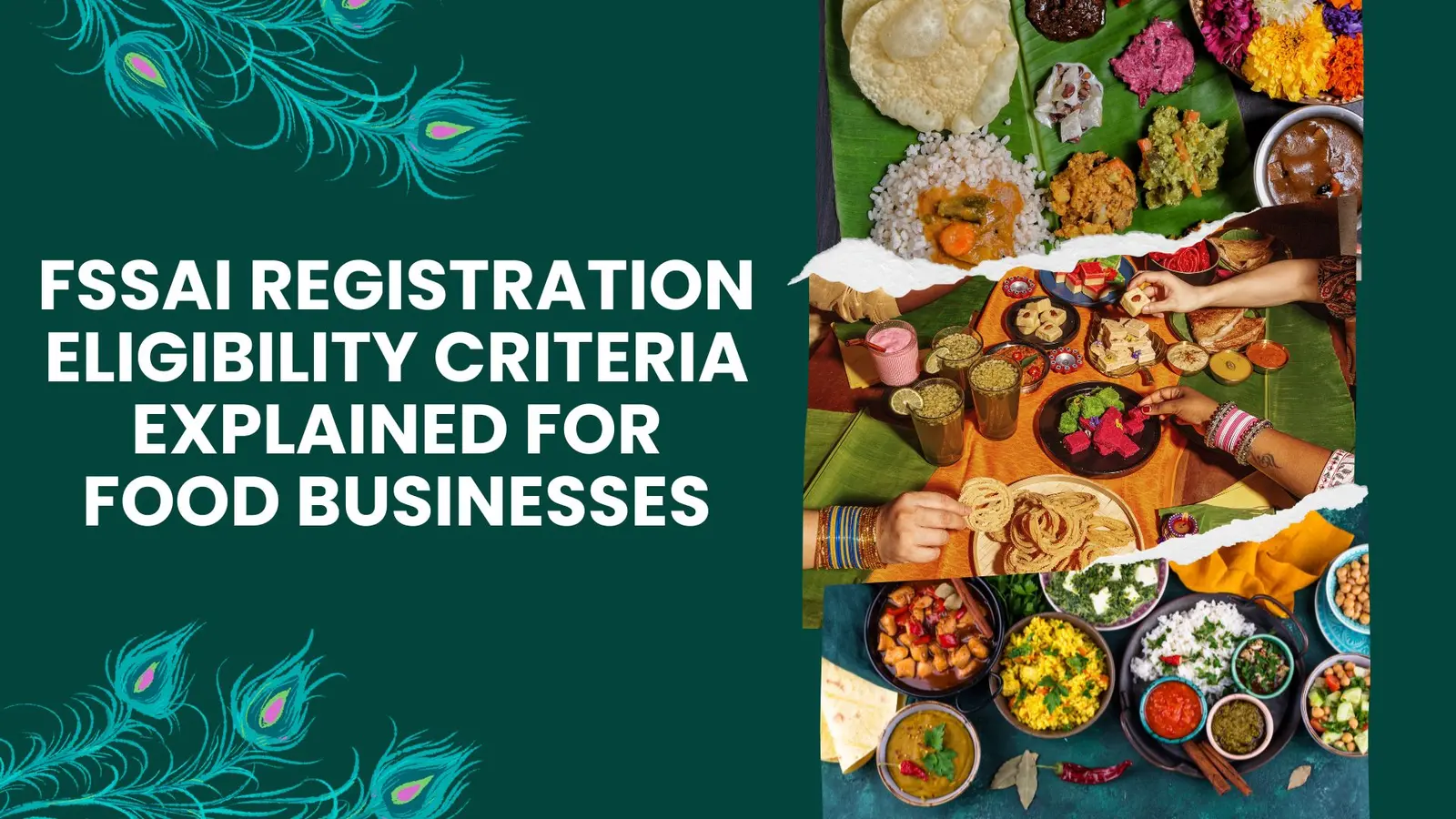We use cookies to personalise site content, social media features and to analyse our traffic. We also share information about your use of this site with our advertising and social media partners.
Posted by - Online Services -
on - 5 hours ago -
Filed in - Business -
-
5 Views - 0 Comments - 0 Likes - 0 Reviews

In today's health-conscious world, food safety has never been more essential. From small food vendors to large-scale manufacturing operations, be sure to register the FSSAI licence. It is not a legal formality; it is a required document. In India the Food Safety and Standards Authority of India (FSSAI) plays a pivotal role in ensuring adherence to food safety protocols. Especially for small and medium enterprises, they are using this FSSAI registration to grow their business. The FSSAI registration portal is very important for food industry transparency.
FSSAI registration is compulsory for anyone engaged in the food industry in India. It is authorised by FSSAI, the Food Safety and Standards Authority of India (FSSAI). A compliance authority under the control of the Ministry of Health and Family Welfare. This registration confirms that a food business meets the guidelines and norms, ensuring the safety and quality of food items.
FSSAI Basic Registration (FSSAI Licence Type A): Applicable for small-scale food businesses, including petty retailers, small-scale manufacturers, and food processors whose annual turnover does not exceed ₹12 lakhs. Basic registration is suitable for businesses with limited operations and low turnover.
FSSAI State License (FSSAI License Type B): Applicable for medium-sized food businesses, including manufacturers, storage units, transporters, retailers, marketers, and distributors. Required for businesses with an annual turnover between ₹12 lakhs and ₹20 crores.
FSSAI Central License (FSSAI License Type C): Applicable for large-scale food businesses with operations across multiple states or with an annual turnover exceeding ₹20 crores.
This is for small-scale or petty food businesses, such as:
Food vendors and hawkers
Small retailers or grocery shops
Cottage industries related to food
Home-based food businesses (homemade pickles, tiffin services, bakers, etc.)
Temporary stalls
Dhaba owners and tea stalls
Food businesses with annual turnover less than ₹12 lakh.
Applicable to medium-sized food businesses, including:
Medium-scale manufacturers, processors, or transporters
Cold storage units or warehouses
Food chains operating within one state
Hotels, restaurants, or canteens with turnover between ₹12 and ₹20 crore
Distributors and suppliers operating within a state.
Required for large-scale businesses or those operating interstate or internationally:
Large food manufacturers or processors
Importers and exporters of food products
E-commerce food businesses (e.g., Swiggy, Zomato, Amazon Food)
Food businesses operating in more than one state
Food businesses with turnover exceeding ₹20 crores per year
Food supplied to government institutions (e.g., railways, defence)
Identity proof of the applicant.
Provide proof of the business premises.
Proof of the business constitution.
Photograph of the applicant.
Food safety plan.
List of food products.
NOC.
Import and export code.
Step 1: Visit the official portal of FSSAI.
Step 2: Select the option of type of registration.
Step 3: Fill the application form like this:
Name of business
Name of applicant.
Email ID and mobile number.
Address of the business.
Date of incorporation.
Kind of business.
Select the registration type.
Registration tenure.
State and district pincode.
Additional details about the businesses.
Business proof.
Step 4: Enter the verification code.
Step 5: Submit the application.
FSSAI registration is a required document for all food entrepreneurs in India.
This is required for food operators to follow food safety rules, covering sanitation, labelling and product quality norms.
It discourages unsafe practices by imposing legal penalties for violations.
FSSAI standards promote proper hygiene, management and preservation of food.
Food service providers must ensure they train personnel in cleanliness standards to ensure regulatory compliance.
Regular reminders help establish a workplace culture that values cleanliness as routine.
FSSAI offers Food Safety and Certification (FoSTac) programmes.
These programmes train food handlers and businesses on safe practices.
Improved awareness encourages proactive and well-informed decision-making in food safety matters.
FSSAI encourages the adoption of standard procedures (SOPs) throughout the food sector.
Standardised procedures ensure consistent food handling, decreasing contamination hazards.
Businesses registered with FSSAI undergo regular inspections.
This monitoring fosters regular improvement and self-regulation to avoid sanctions or suspension.
Displaying an FSSAI licence or registration number on food packaging enhances consumers’ trust.
It confirms to the public that the product meets national safety requirements for food.
This demand from knowledgeable consumers compels businesses to focus on safety.
The FSSAI registration is very important for all food businesses in India. Based on the business to register the FSSAI eligibility criteria. By obtaining FSSAI registration or a licence through this portal, businesses can fulfil legal obligations, strengthen consumer confidence, and gain broader market access. Approval of the FSSAI registration process is a crucial step towards sustainable development, trust, and success in the competitive food sector.

“To assist disaster survivors by providing a source for them to come together in time of need, to aid in the listing of events, information and other forms of assistance, and continuing support through the recovery process.”
Share this page with your family and friends.